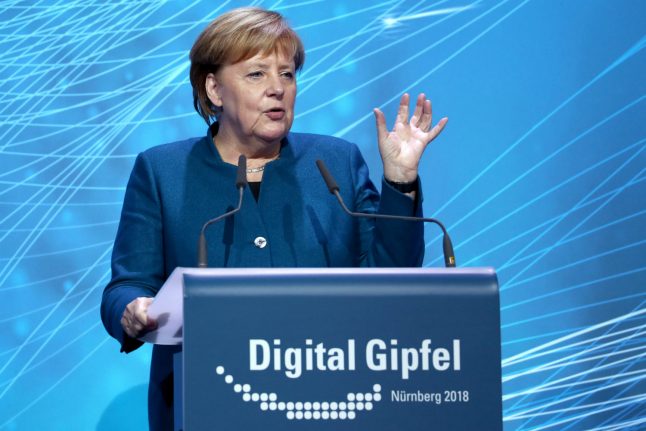Speaking at a digital summit in Bavaria, Merkel said technological advances were revolutionising the workplace, and Germany's small- and medium-sized enterprises could not afford to miss the boat.
“We have global champions (in digitalization) but the bulk of the Mittelstand companies are perhaps not as far along as they should be,” Merkel told the audience.
“Since we're a country that prides itself on saying that the Mittelstand is the backbone of our industrial value creation, we have to make sure that the frontrunners pull the others along.”
SEE ALSO: Small talk with Luna: German robots increasingly in contact with customers
Merkel said it was not just up to the private sector to help SMEs adapt to what has been dubbed “industry 4.0”, adding that “the government is also ready to play a role” in the efforts.
Germany's Mittelstand is made up of tens of thousands of companies that often make highly-specialized products for niche markets, ranging from a specific type of screw to high-tech parts for medical equipment or factory robots.
Merkel's government, often criticized for not investing enough in the country's creaking internet infrastructure or the technologies of tomorrow, has belatedly embarked on a push to encourage German innovation.
Berlin last month promised to spend three billion euros on research and development in artificial intelligence by 2025, an area where US and Asian companies are seen as far more advanced.
“AI will save us time on mindless, repetitive algorithms and allow more time for creativity, Merkel said.
“That's good news, at least for all those who aren't mentally lazy,” she added with a smile, winning a chuckle from the crowd.
At the same gathering, Germany's economy minister Peter Altmaier repeated his plea for European cooperation on AI projets.
“AI technology can massively improve our lives, be it through early detection of diseases, support in the care sector or autonomous driving,” he said.
“Alongside modern digital infrastructure, we need a strategic industrial player, a kind of Airbus for AI.”




 Please whitelist us to continue reading.
Please whitelist us to continue reading.
Member comments